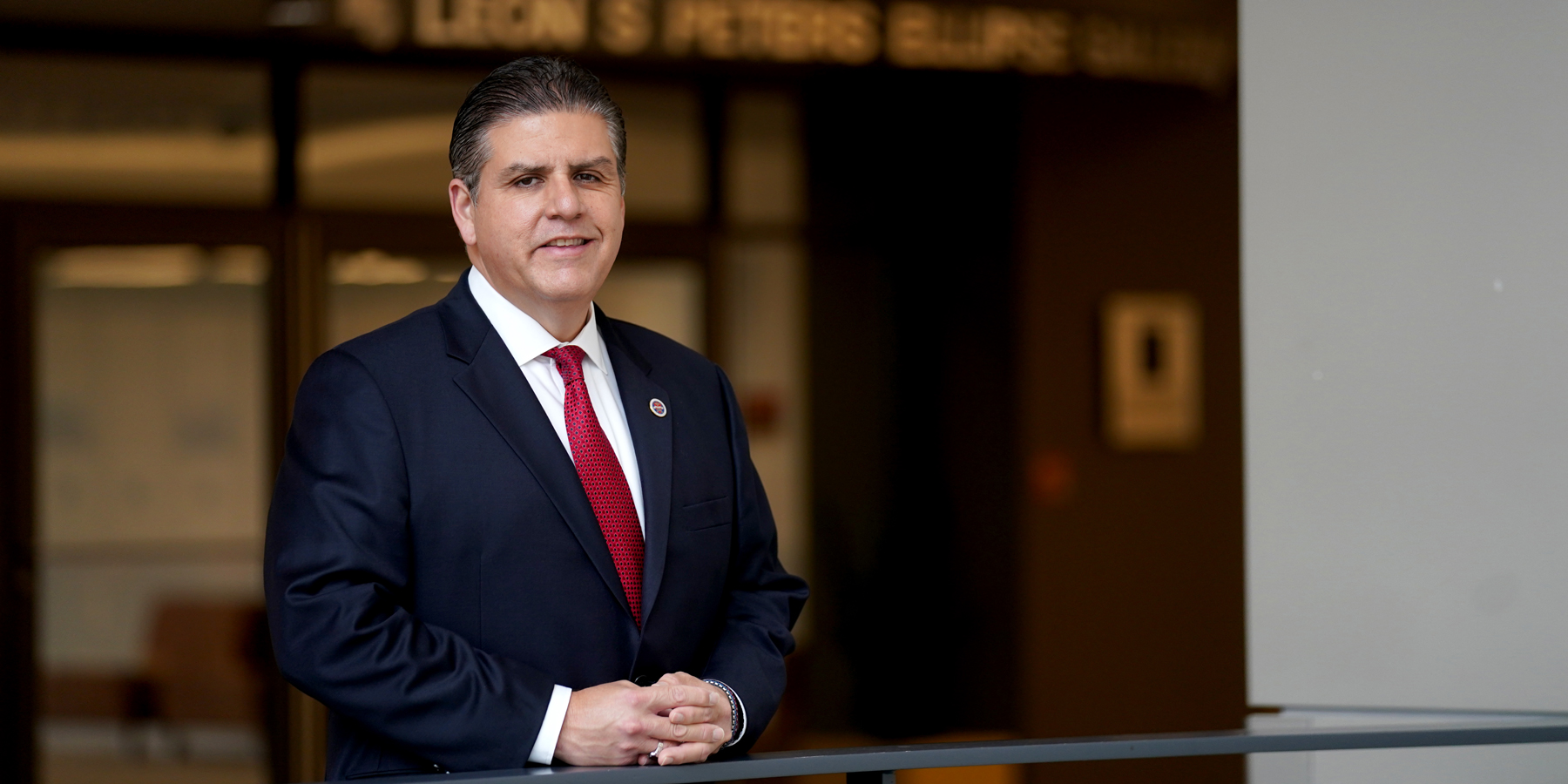Hispanic Heritage Month is recognized nationwide from Sept. 15–Oct. 15 as a time to honor the cultures and contributions of Hispanic and Latino Americans. Gov. Gavin Newsom, in a proclamation issued on Sept. 15, 2020, recognized Latino Heritage Month to honor and recognize the contributions of this diverse group.
California State University, Fresno President Joseph Castro was appointed chancellor of the CSU system on Sept. 23, making him the first Mexican American to hold the position, as well as the first California native to oversee the 23-campus, 482,000-student university. Castro will take his place as the eighth chancellor of the CSU on Jan. 4, 2021.
The grandson of immigrants and the son of a single mother, Castro was the first in his family to graduate from college. As the head of Fresno State since 2013, he has been recognized nationally for recruiting students from diverse backgrounds. Currently, CSU students are 43 percent Latino, 22 percent white, 15 percent Asian and 4 percent Black.
CSBA spoke with Castro about his historic appointment, his goals for the university system and the signing of Assembly Bill 1460 — which requires the CSU to expand Native American studies, African American studies, Asian American studies and/or Latino studies. Under the bill signed by Gov. Gavin Newsom in August, students graduating in the 2024–25 academic year must complete one 3-unit course in ethnic studies to earn their undergraduate degree.
Q: Your appointment is historic in a few ways, since you’ll be both the first California native and first Mexican American to hold the position. Do you think your lived experiences will help you bring something new to the table?
A: I am thrilled to be Chancellor-select of the California State University. My new role will allow me to serve in a very meaningful way during this unprecedented and consequential time for our university, our state and our nation.
I was born in the San Joaquin Valley (Hanford). I am the grandson of immigrants from Mexico, the son of a single mother and the first in my family to graduate from a university. Higher education provided me with the opportunity to be chosen by the CSU Trustees for this role and I see myself as an example of how a college degree can better your life.
Attending UC Berkeley was a decision that transformed my life. Studying political science sparked my interest in leadership and public service. As an undergraduate student, it became clear to me that universities can transform lives. The experience and opportunities I had as a college student, first at Berkeley and later as a student at Stanford, really drove my interest in serving in various roles in higher education.
Students of the CSU are so talented and diverse and the fact that many of them grew up with circumstances like my own is what drives and inspires me to do that on a larger scale.
Q: As incoming president of the California State University system, what are some of your goals?
A: I’ve worked closely with Chancellor [Timothy] White and all of the other campus presidents on the Graduation Initiative 2025 and as a university we are collectively dedicated to achieving the ambitious goals of the initiative — increasing graduation rates and eliminating achievement gaps for all students.
The pandemic has presented challenges to our operations and how we serve students, so another priority is to safeguard the health and safety of our entire CSU community under these unique circumstances. I look forward to the time when we can safely return to campus life, but there are opportunities to review our processes to ensure that when we are able to be back on campus, that we are providing an even stronger educational experience.
Collaborating closely with our legislative leaders and the Governor to increase funding for the CSU is also something that I look forward to working on as chancellor. I’ve already had meetings with the Governor, lieutenant governor and legislative leaders and will continue to share with them the many ways the CSU positively impacts the Golden State. I’ll also be working to identify other partnerships and sources of funding that will enable the university to continue to serve students and California.
Q: What role do you believe the CSU system plays in helping California’s students get an education that will set them up for success?
A: The California State University provides unprecedented opportunities for people to earn a high-quality college degree and to better their families, their communities and the industries in which they become leaders. The system is an unparalleled engine of social mobility for the 482,000 students who attend one of our 23 universities, and while serving as the president of Fresno State I have seen first-hand how students’ lives can be transformed through the pursuit and earning of a college degree. As a first-generation student myself, I’ve experienced the importance of earning a college degree and how life changing that can be.
Not only is the CSU the nation’s largest four-year university in the country but I also believe it makes the greatest impact. The numbers are staggering — the CSU educates 482,000 students and employs 53,000 faculty and staff across 23 campuses. Every year, 125,000 people earn a high-quality degree from a CSU campus. Our students become leaders in California and beyond. In fact, one of every 10 employees in the state of California is a graduate of the CSU. There are over 3.8 million living alumni of the CSU — our reach into communities and industries is unprecedented.
Q: Recently, Gov. Gavin Newsom signed a bill mandating ethnic studies as a graduation requirement for CSU students beginning with the 2021–22 freshman class, though there was some opposition from the Board of Trustees. Do you feel an ethnic studies course requirement will ultimately benefit students?
A: The CSU’s opposition to the bill was related to legislative intervention into degree requirements — that responsibility is and has always been within the faculty. The CSU has been a national leader in the support and development of ethnic studies. The university plays a unique role in preparing a new generation of leaders, from all different backgrounds. I believe learning about others whose experiences are different than our own, thinking about race and ethnicity and ways to build a diverse, just and equitable society beyond the classroom will impact our state and nation positively.
Q: Have you begun considering how to address things like recruitment and onboarding of high school seniors as they matriculate amid all the confusion and shifts caused by the pandemic?
A: The COVID-19 pandemic has been challenging but it has also presented opportunities. I believe we are going to think differently about the ways in which we engage students through technology and that we are going to be even stronger after the pandemic.
One of the key tenets of the Graduation Initiative 2025 is to remove administrative barriers and there are additional ways we can help students make that transition. There are dedicated staff at every CSU campus doing their very best to make the process less confusing for students.





